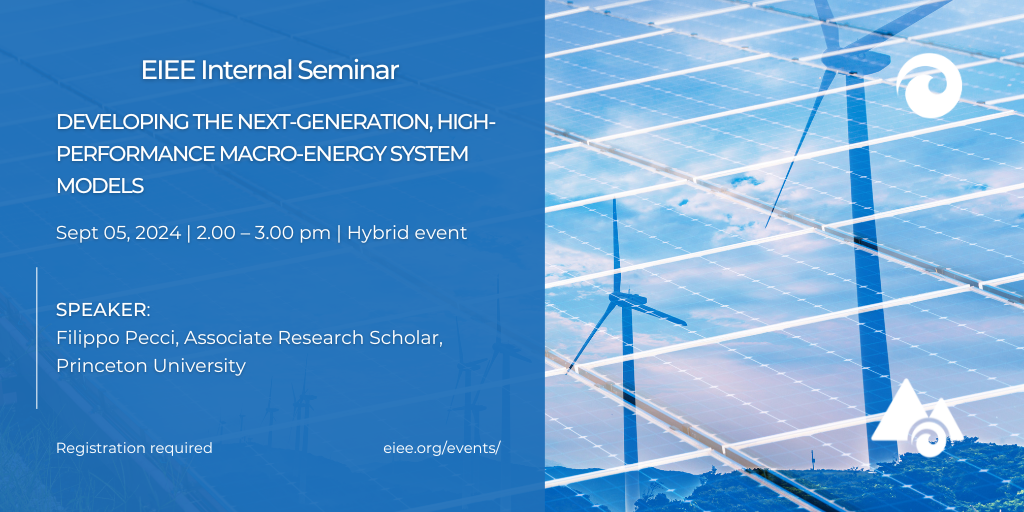
- This event has passed.
EIEE Internal Seminar

Developing the next-generation, high-performance macro-energy system models
Speaker: Filippo Pecci, Associate Research Scholar (Princeton University)
With the increasing urgency to reduce greenhouse gas emissions, it is critical to identify decarbonization pathways subject to engineering, environmental, political, and economic constraints. Energy system planning models have a pivotal role in guiding energy innovation and resource allocation decisions, helping to avoid misallocation of investment, understand the role of emerging technologies and impact of possible policy interventions, and develop robust strategies to transition to a net-zero economy.To provide credible support for planning and policy decisions, these models need to include detailed operations and time-coupling constraints, consider multiple possible realizations of weather-related parameters and demand data, and allow modeling of discrete investment and retirement decisions. Such requirements result in large-scale mixed integer optimization problems with tens to hundreds of millions of variables and constraints, pushing even the best commercial solvers to their computational limits. Due to these computational constraints, existing models are heavily simplified by: sampling representative time periods or ignoring sequential operations entirely (e.g., “time slices”); aggregating regions into larger geographic zones; and/or ignoring or relaxing key operational constraints. These abstractions can ensure models are computationally tractable but come at the cost of significantly reduced accuracy that impacts their ability to provide credible decision support. Benders decomposition offers scalable approaches to leverage distributed computing resources and enable models with both high resolution and computational performance. In this seminar, we present a tailored Benders decomposition method for large-scale energy planning models with multiple planning periods, stochastic operational scenarios, time-coupling policy constraints, and multi-day energy storage and reservoir hydro resources. Using multiple case studies, we demonstrate that the proposed methods enable high-resolution, mixed-integer energy planning models with unprecedented computational performance.


